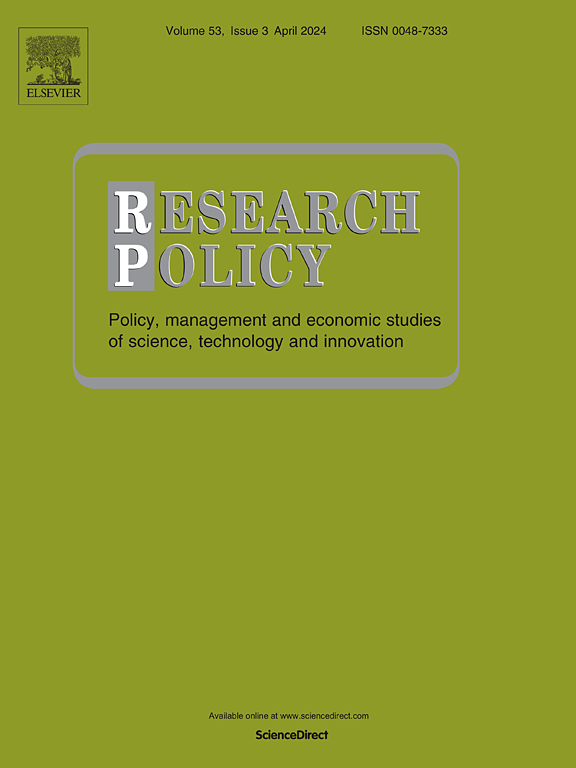合作的细则:合同条款如何管理公共资助研究中的知识产权和信息披露
IF 8
1区 管理学
Q1 MANAGEMENT
引用次数: 0
摘要
我们研究了公共资金和竞争导向如何影响大学-产业合作中关于知识产权(IP)和信息披露的合同条款。通过系统地编码和分析由挪威研究委员会资助的484个合作项目的合同,我们发现知识产权所有权、开发权、出版政策和保密规则方面存在相当大的异质性。我们的聚类分析揭示了三种不同的治理模式:专有伙伴关系、受控访问协议和开放科学合作。控制访问协议——大学保留知识产权所有权,但行业合作伙伴拥有开发权并施加披露限制——是最常见的。回归分析表明,较高的公共资金份额与减少的行业所有权和使用权显著相关,但与出版或保密限制无关。此外,具有更多样化的财团和以研究为导向的资助工具的项目往往采用较少限制性的披露条款。这些发现挑战了简单的开放封闭二分法,并对合同条款如何调节公共资助研究的传播提供了细致入微的理解。我们的研究有助于讨论开放科学、知识垄断和研究成果的战略治理。本文章由计算机程序翻译,如有差异,请以英文原文为准。
The fine print of collaboration: How contractual provisions govern IP and disclosure in publicly funded research
We investigate how public funding and competing orientations shape the contractual provisions regarding intellectual property (IP) and disclosure in university–industry collaborations. By systematically coding and analysing the contracts of 484 collaborations funded by the Research Council of Norway, we identify considerable heterogeneity in IP ownership, exploitation rights, publication policies, and confidentiality rules. Our cluster analysis reveals three distinct governance models: proprietary partnerships, controlled access agreements, and open science collaborations. Controlled access agreements—where universities retain IP ownership, but industry partners hold exploitation rights and impose disclosure restrictions—are the most common. Regression analyses show that higher public funding shares are significantly associated with reduced industry ownership and use rights, but not with publication or confidentiality restrictions. Moreover, projects with more diverse consortia and research-oriented funding instruments tend to adopt less restrictive disclosure provisions. These findings challenge the simplistic open–closed dichotomy and offer a nuanced understanding of how contractual provisions mediate the diffusion of publicly funded research. Our study contributes to debates on open science, knowledge monopolies, and the strategic governance of research outcomes.
求助全文
通过发布文献求助,成功后即可免费获取论文全文。
去求助
来源期刊

Research Policy
MANAGEMENT-
CiteScore
12.80
自引率
6.90%
发文量
182
期刊介绍:
Research Policy (RP) articles explore the interaction between innovation, technology, or research, and economic, social, political, and organizational processes, both empirically and theoretically. All RP papers are expected to provide insights with implications for policy or management.
Research Policy (RP) is a multidisciplinary journal focused on analyzing, understanding, and effectively addressing the challenges posed by innovation, technology, R&D, and science. This includes activities related to knowledge creation, diffusion, acquisition, and exploitation in the form of new or improved products, processes, or services, across economic, policy, management, organizational, and environmental dimensions.
 求助内容:
求助内容: 应助结果提醒方式:
应助结果提醒方式:


